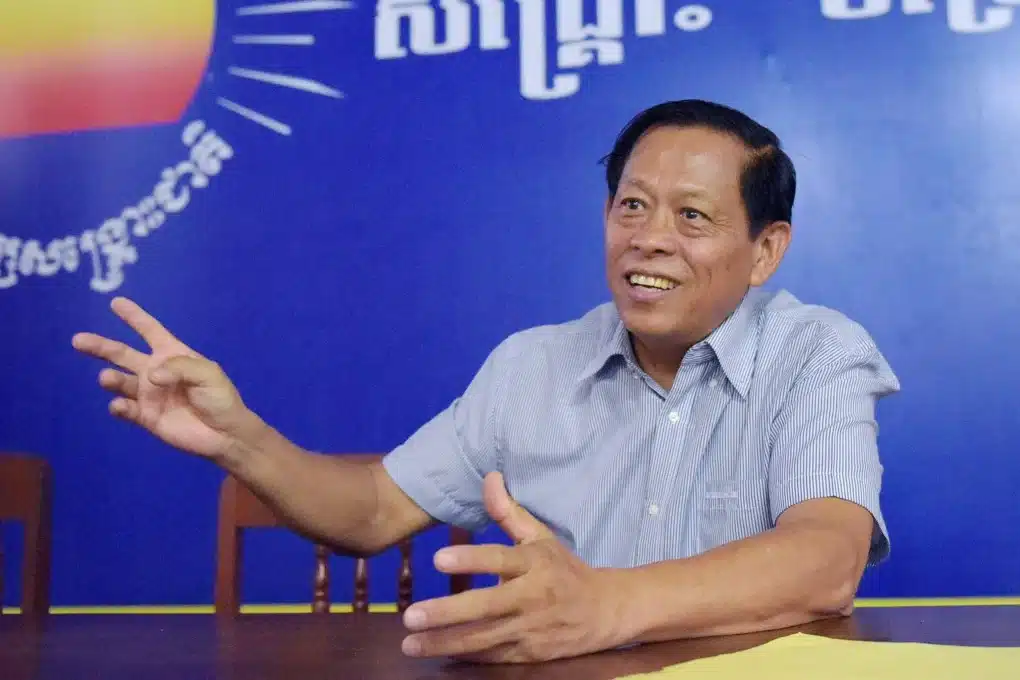Assassination of Cambodian Opposition Figure in Bangkok

The assassination of Lim Kimya, a former Cambodian parliamentarian, has sent shockwaves through the political landscape of Southeast Asia. The 73-year-old was shot dead in Bangkok’s royal quarter, an area known for its historical significance and tourist attractions. This incident raises serious questions about political violence and the safety of dissidents in the region. Lim Kimya was a prominent figure in the Cambodia National Rescue Party (CNRP), which was banned in 2017. His death is not just a personal tragedy; it highlights the ongoing repression faced by opposition figures in Cambodia and the broader implications for human rights in the region.
The Circumstances of the Assassination
Lim Kimya’s assassination unfolded in a manner reminiscent of a professional hit. Security camera footage captured the chilling moments leading up to the shooting. A man, later identified as the assassin, parked his motorbike near a well-known temple. He removed his helmet, ensuring his face was visible, and calmly walked across the street. Just minutes later, gunshots rang out, and Lim Kimya fell to the ground, struck by two bullets in the chest. Despite attempts by a police officer to resuscitate him, he was pronounced dead at the scene.
The assassin’s actions were calculated. After shooting Lim Kimya, he swiftly returned to his motorbike, appearing to dispose of something as he fled. This level of planning suggests that the killing was not a random act of violence but rather a targeted assassination. Lim Kimya had just arrived in Bangkok with his wife, seeking refuge from the oppressive political climate in Cambodia. His daughter, Monovithya Kem, expressed her belief that only the Cambodian state would have wanted him dead, underscoring the political motivations behind the assassination.
Lim Kimya’s Political Legacy
Lim Kimya was not just a politician; he was a symbol of resistance against the authoritarian regime of Prime Minister Hun Sen. Holding dual Cambodian and French nationality, he chose to remain in Cambodia even after the CNRP was outlawed. The CNRP was formed from a merger of two earlier opposition parties and came close to defeating Hun Sen’s ruling party in the 2013 elections. Following this close call, the government accused the CNRP of treason, leading to its dissolution and the harassment of its members.
In 2023, Kem Sokha, the leader of the CNRP and Lim Kimya’s ally, was sentenced to 27 years in prison after spending six years under house arrest. This pattern of repression has created a climate of fear among opposition figures. While high-profile political assassinations are rare in Cambodia, they have occurred, such as the murder of activist Kem Ley in 2016. The recent killing of Lim Kimya raises concerns about the safety of political dissidents in the region and the lengths to which the Cambodian government may go to silence its critics.
The Broader Implications for Human Rights
The assassination of Lim Kimya is part of a troubling trend of transnational repression in Southeast Asia. Human rights groups have documented numerous cases where activists fleeing persecution in Cambodia, Vietnam, Laos, and Thailand have been forcibly returned to their home countries, where they face imprisonment or worse. There are allegations of an unwritten agreement among these nations to allow each other’s security forces to pursue dissidents across borders.
In recent years, Thailand has sent back several Cambodian dissidents, including a group of six recognized as refugees by the United Nations. The lack of accountability for such actions raises serious concerns about the protection of human rights in the region. Phil Robertson, director of the Asia Human Rights and Labour Advocates, criticized this “swap arrangement,” which compromises the safety of dissidents in exchange for political and economic favors.
As Cambodia transitions to a new leadership under Prime Minister Hun Manet, speculation about a more lenient approach has not materialized. Opposition figures continue to face prosecution, and the space for political dissent remains severely restricted. The international community, particularly Thailand, now faces pressure to address this brazen act of violence and ensure justice for Lim Kimya. The assassination serves as a stark reminder of the ongoing struggle for democracy and human rights in Southeast Asia.
Observer Voice is the one stop site for National, International news, Sports, Editor’s Choice, Art/culture contents, Quotes and much more. We also cover historical contents. Historical contents includes World History, Indian History, and what happened today. The website also covers Entertainment across the India and World.
Follow Us on Twitter, Instagram, Facebook, & LinkedIn

